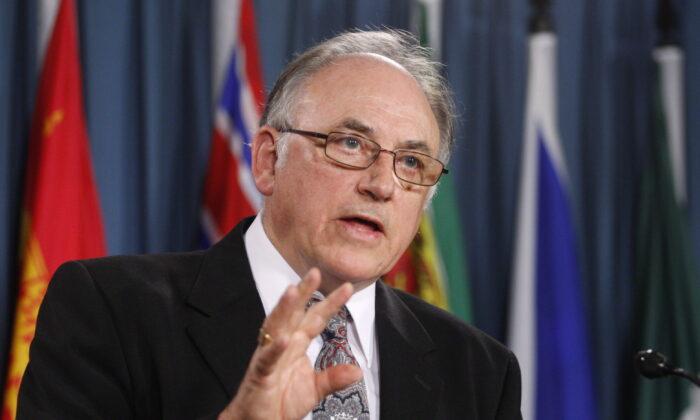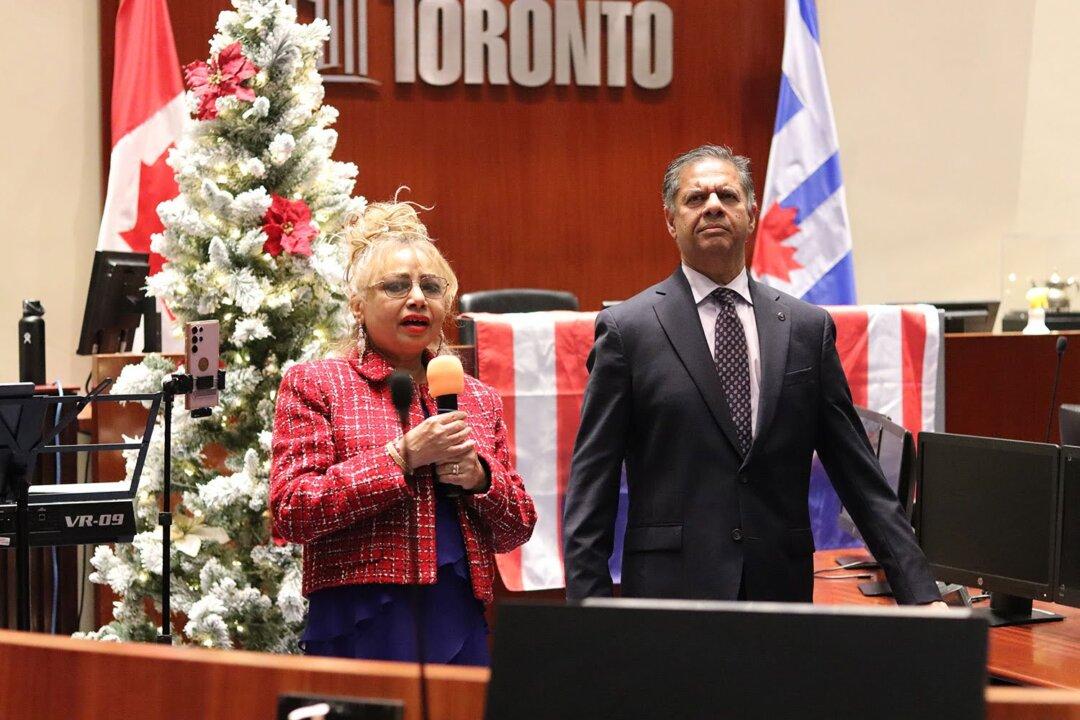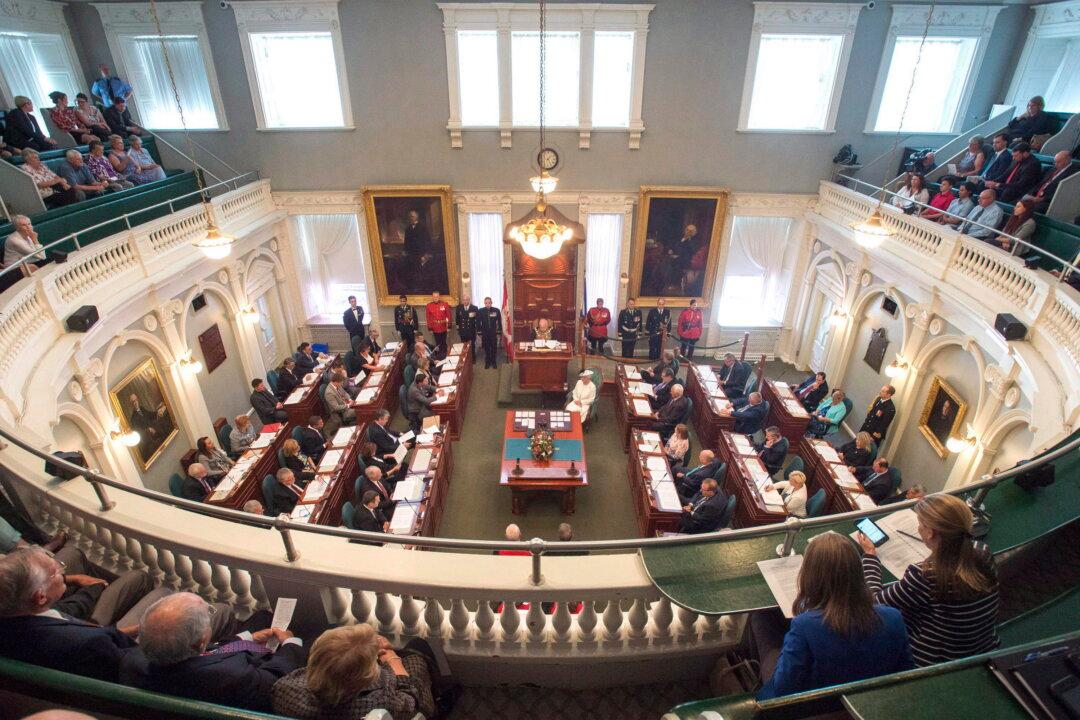A focused, unified effort is required to restore Canada’s democracy, former Newfoundland and Labrador premier Brian Peckford told attendees at a citizens’ conference in B.C.’s capital city.
Peckford made his comments in a keynote address at the Reclaiming Canada Conference hosted in Victoria May 26 to 28 by the group We Unify.
“The most successful governance system for people in the world is the nation-state,” Peckford said, receiving applause from the audience of over 200.
“This business to try to put us into some kind of international organization is full of you-know-what. It cannot be allowed to happen. Canada has got to stop joining or signing anything which in any way dilutes their sovereignty and our sovereignty,” he said.
“We need to have a common heritage and geography, history and a culture, to bring together into one country, and that that country should be sacrosanct. Otherwise, the country breaks down because you don’t know who you are anymore.”
We Unify describes itself on its website as “an independent and nonpartisan volunteer organization that confronts deep-rooted challenges in Canadian democracy while defending against new threats.”
The purpose of the conference, according to its website, was to “form a national strategy in order to advance our freedom and to repair the damage stemming from political and societal dissonance.”
Peckford said constitutional change is difficult, so renewal must happen within the existing framework. He said the establishment of “honesty” in politics is needed, and that parties should follow the example of the People’s Party of Canada and publish their annual statements.
N.L.’s third premier, who led from 1979 to 1989, said public debt “has gone crazy, in the last 20 years especially,” and this has to stop.
“We’ve got to look at paying our way, and if you want to classify that as old-fashioned, go right ahead. It will be new-fashioned one of these days when we’re on our knees and can’t raise any money.”
Peckford said judges failed to uphold the Constitution without bias during the pandemic. He said judges should be publicly interrogated as candidates and be approved by “the people,” not just the prime minister.
“We’ve got to get a different way of appointing the judiciary,” he said.
Peckford said many MLAs he spoke to had never read the Charter of Rights and Freedoms. He believes provinces should mandate civics classes on how Canadian institutions of government work, something he taught after school to Grade 8 students before becoming an elected politician.
“If you could get Canadians, as a group, to just dedicate themselves to reclaiming Canada through what we can do now, rather than some fantasy of what we may or may not be able to do later, it seems to me to be a viable program to try and save this nation.”
‘Very Worried for Democracy’
Participants at the conference included journalists, doctors, lawyers, politicians, and freedom activists. John Carpay, Leighton Grey, Charles Lugosi, Kip Warner, Dr. Stephen Malthouse, Dr. William Makis, and Chris Barber were among the speakers and panelists.B.C. Conservative Party leader John Rustad told the audience that he’s “very worried for democracy” and “we’re on the verge of falling apart as a country” unless Canada is reclaimed “one province at a time.” He called on attendees to “renew confederation,” and coalesce around the values they wanted to promote, especially truth.
“I can tell you from my experience in politics that political parties want to work in the shadows,” Rustad said.
“They want to be able to put their own spin on things so that you'll consider supporting them, rather than just putting the facts out there and allowing people to be able to understand what’s going on and be able to judge for themselves. And quite frankly, that’s what we need.”
Rustad represented the central B.C. riding of Nechako Lakes as a Liberal from 2005 to 2022. The former cabinet minister was ousted from the B.C. Liberal Party (now BC United) after reposting a tweet from Patrick Moore that challenged the role of carbon dioxide in climate change. Rustad joined the Conservatives in February of this year, and became leader on March 31.
The MLA said his former party told him not to attend a freedom rally in Vancouver that included a parade.
“The B.C. Liberal Party said, ‘Don’t go anywhere near it. We can’t talk about it, we can’t support it. All it will do is cost us votes in the Lower Mainland.’ … I thought, that’s nuts,” he said.
“It reminded me, quite frankly, of the 2010 Olympics,” he said of the freedom rally.
“People were waving flags, they were proud of the country that they belonged to. They were singing ”O Canada” at the top of their lungs. ... That, to me, is the real power of what we want to see in this province, in this country.”
Rustad said a conversation with someone after the rally also revealed a problem. The man told Rustad he had never been involved in a political party and did not vote in the previous election.
“Close to half the people in this province and in this country don’t vote. That means we are allowing the special interest groups to take control of the agenda, to drive our policies as a province”
Victoria-based lawyer Umar Sheikh spoke May 28. Last decade, the former general counsel for the British Columbia Nurses’ Union helped overturn a flu vaccine mandate for health-care workers, which he said took 10 years of effort and $2 million in legal fees.
“You have to lose before you win in the legal system,” Sheikh explained. “Eventually you can make change, but it takes a great deal of time to do it.”
Sheikh said a different model was needed to represent those affected by COVID-19 vaccine mandates because lost livelihoods led to three suicides among groups he represented. In response, he spearheaded what he called a “karmic retainer.”
“Whether you were a public servant, or a health-care worker, or anybody else we'd be willing to take you on, but the first thing you had to do was organize yourselves into your own group. And then once you did that, you had to create a hardship fund for each other, to help each other pay rent, to help each other buy gifts, groceries, anything that people needed,” he said.
Counselling and medical support was also arranged through such groups, whose numbers, Sheikh said, have swelled to 25,000.
“All of those services had to be there. And then after that, if they could afford to pay us, great. And if they couldn’t, that was fine too.”





